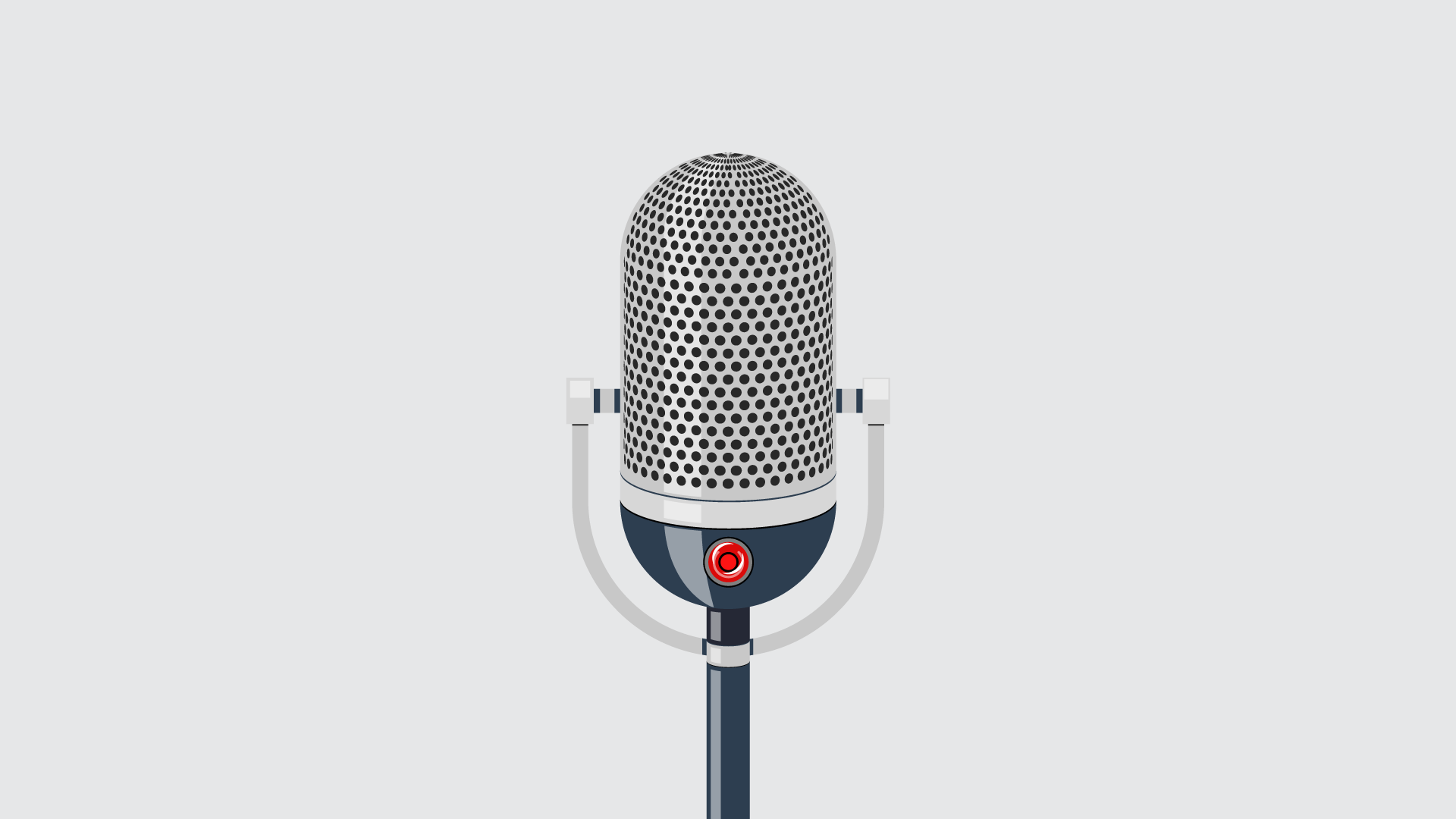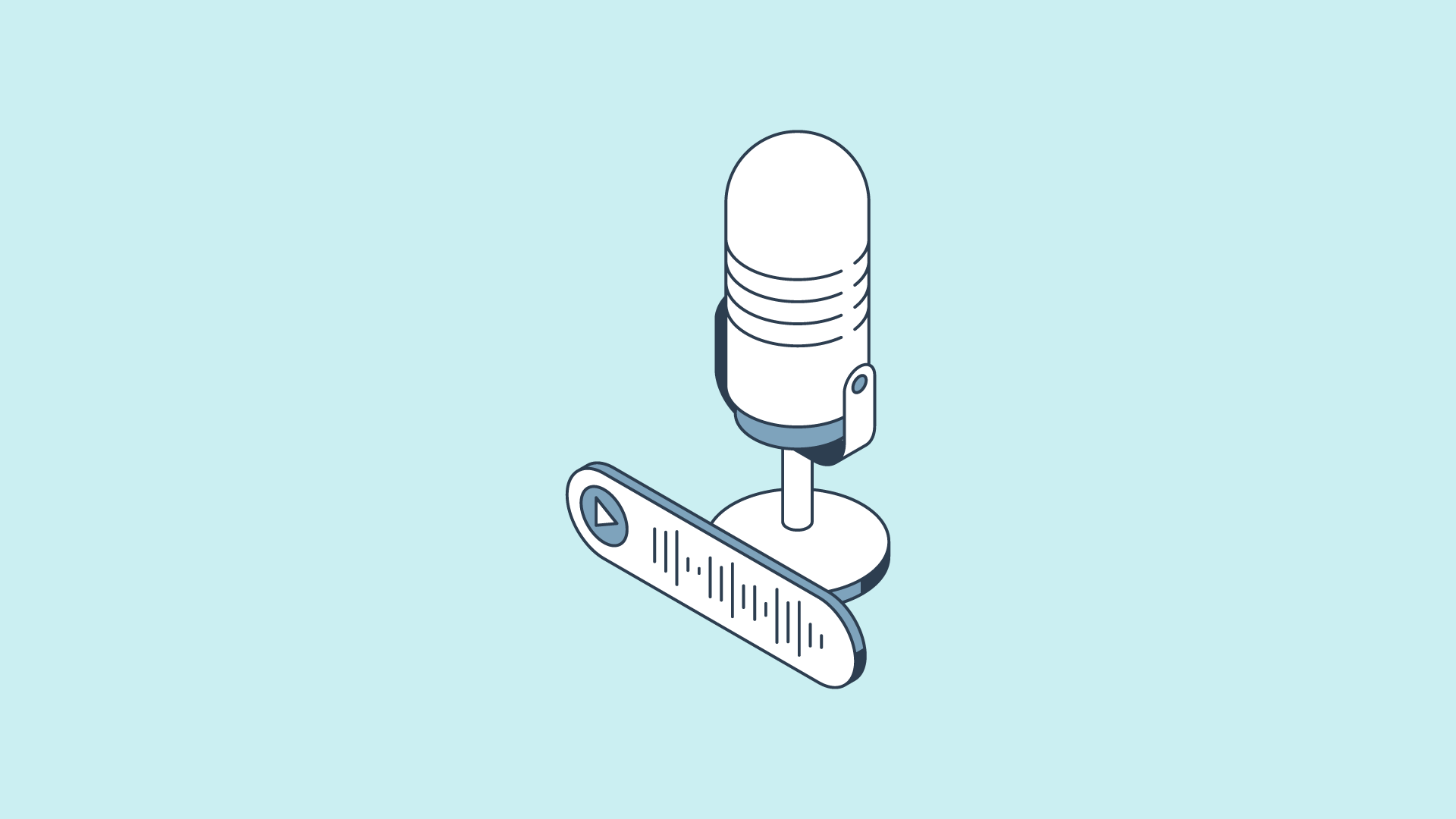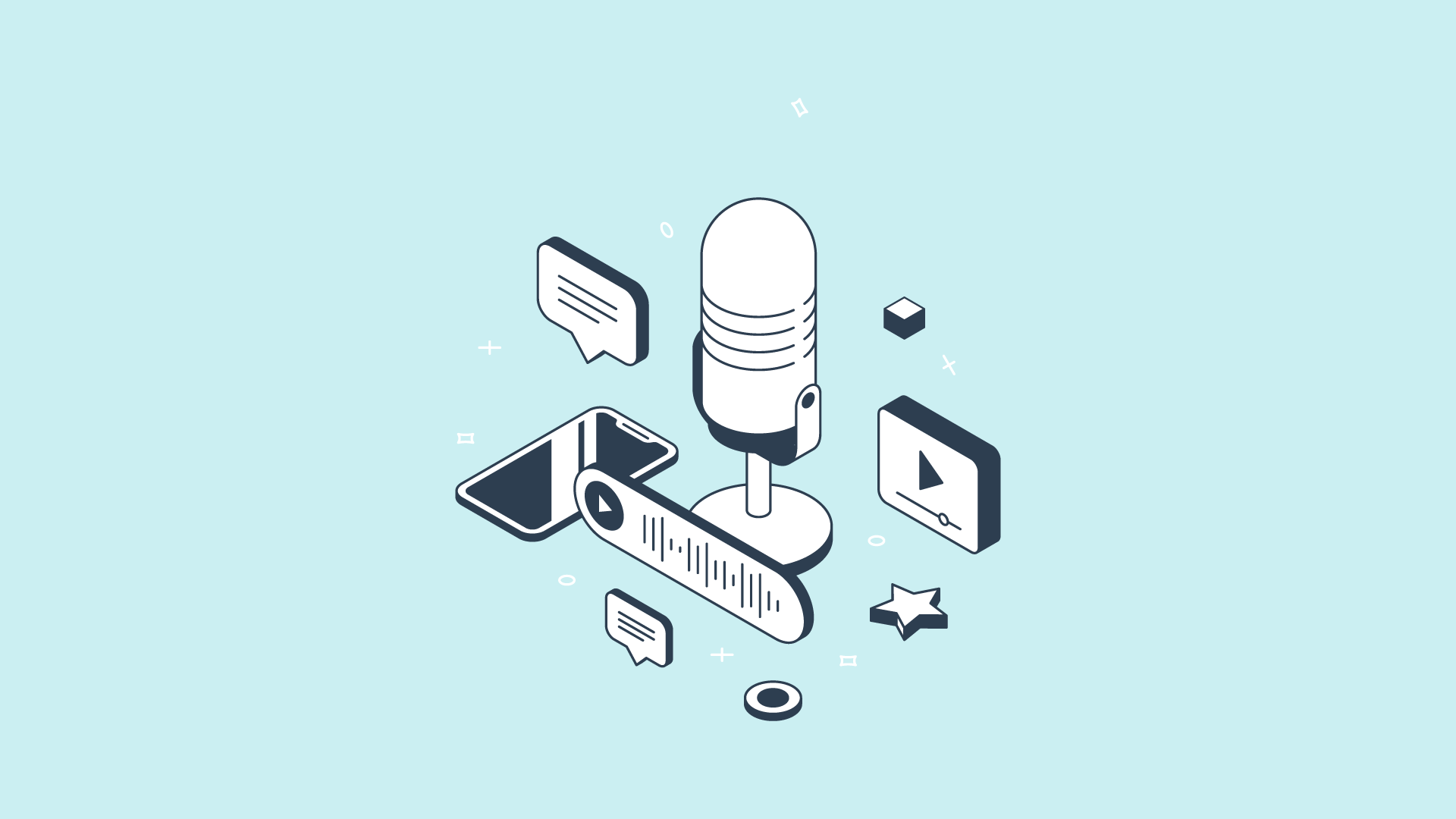When I first discovered podcasts, they were an ideal way to pass the time during long during the pandemic.
The first podcast that inspired me was "Business Wars” a business show. It critically examines business rivalries between two companies and tries to determine whether they're successful or not.
Today, I listen to a wide range of podcasts including Marketing School Podcast by Neil Patel and Eric Siu, It's a Jungle Out There, and HBR's Idea Cast. So, what does it mean to start a podcast? That's what this article is all about.
Podcasts are becoming increasingly popular. They allow you to share your thoughts and ideas with anyone who wants to listen. In addition, they allow you to connect with other people from around the globe. If you want to start a podcast, then read our guide below.
A podcast is a series of audio files that are uploaded to the web. The podcasts are usually hosted on websites such as iTunes.
You don't need to be a professional broadcaster to get started. All you need is a microphone and some basic equipment. Once you've got those things, you'll be able to record your voice and upload it to the Internet.
|
Podcast An audio series that a user can download to a personal device and listen to at their leisure. |
What is a podcast and how does it work?
Podcasts are audio programs that people can download to their devices and listen to whenever they want.
A podcast is similar to any TV show. It has a specific theme, it’s serialized (episodic) and can have multiple seasons, plus can be either reality- or fiction-focused.
Podcasting is not quite the same as television; it is essentially just audio. However, it does share one important similarity with television: both require someone to tell the story. A podcast host must take charge of the narrative and guide the listener through each episode.
There are several different ways to listen to podcasts including Apple Podcasts, Spotify, Stitcher, Sound Cloud, YouTube, and Google Podcasts.
There are currently over 2 million podcasts and over 66 million podcast episodes available today. Of that number of podcast episodes, half use Apple Podcasts.
According to Edison Research, approximately 177 million people in the U.S. over the age of 12 listen to podcasts.
Podcasts vs Standard Audio Files
The difference between podcasts and standard audio files is similar to the difference between videos and TV shows.
Audio formats are used for storing audio content on various devices. Podcasts, however, are shows that involve storytelling, formatting, and sourcing audio files.
What is a podcast host?
A podcast host is a platform where you store your podcasts and distribute them to different directories. It works by uploading your audio files to a web hosting service, creating an RSS feed, and sending your episodes to various directories.
Podcast hosting platforms include Casted, Buzzsprout, Captivate, Libsyn, and Podbean. Here are the top things you should consider when evaluating your options:
- Transcription integration
- Unlimited storage and bandwidth
- Custom website
- Analytics
- A text editor for show notes
What equipment is needed for a podcast?
If you're going to start a podcast, one of the best things about doing so is that it doesn't take much to get started! You just need some good equipment:
-
An external microphone
You might want to consider using an external microphone rather than your computer’s built-in microphone. That way, you won’t need to worry about background noises interfering with your recording. If you're just starting, you may prefer a dynamic mic that's not too sensitive to ambient noise. For a studio setup, a condenser mic could be better. -
A studio or soundproof room
If you want to record a podcast, you should take steps to minimize any background noise as much as possible so that listeners won't be distracted. You should look for a quiet, soundproof place to record. -
Editing software
After recording your podcast, you’ll want to edit your episode so that it includes music and ads and removes anything that doesn't belong. You can use different audio editing programs, including Audacity, Adobe Audition, and others — each varying in its editing features. -
Noise-canceling headphones
They're essential for monitoring audio during the recording process and detecting noises during editing. -
A hosting platform subscription
Hosting platforms are websites where you can store files for others to download. Before you can start distributing your content, you need to upload your files to one of these sites first.
How to Start a Podcast
1. Find a unique and compelling topic to cover.
Starting a podcast is an exciting endeavor, but it requires careful planning and consideration before you begin recording. The first step in creating a successful podcast is to find a unique and compelling topic to cover. Whether you are an individual or a brand, it's essential to choose a subject that resonates with your audience.
Without a topic that appeals to listeners, you'll be talking in an empty space, which can be discouraging.
To ensure your idea has potential, you can explore it further by asking yourself some critical questions. For example, has this idea been covered in another podcast? If so, can you offer a unique perspective? Does your topic relate to current events, and will it appeal to your target audience? Can you create enough content for a full season?
By answering these questions, you can determine if your idea is viable and has the potential for success. If it's not quite there yet, don't worry; you can always refine it or change it later.
It's important to note that you can add your brand's name and logo later in the process, so don't feel like you have to have it all figured out at the beginning. Instead, focus on crafting a strong concept and building a following.
If you need inspiration, you can explore marketing podcasts to see what topics are popular in your industry. With a unique idea and a clear plan, you can start your podcast and share your message with the world.
2. Set up your show format
Podcasts offer the flexibility to produce almost any kind of content. There are two types of formats to choose from, interview-based or storytelling. Interview-based shows usually feature guests and experts, while storytelling shows rely on compelling narratives to keep listeners engaged.
It's essential to choose the right format for your theme to ensure that it appeals to your target audience.
Once you've chosen the format, the next step is to brainstorm the episodes' segments. Segments help break up the content into smaller, more digestible chunks for listeners. You don't need to be too detailed when defining segments; the goal is to find the best way to tell your story to capture and hold your audience's attention. It's also crucial to keep your segments consistent throughout your show to maintain a structure that your audience can rely on.
In setting up your show format, it's crucial to decide on the episode length, frequency, and release schedule. Determine how long your episodes will be and how often you plan to release them.
Keep in mind that it's better to maintain a consistent schedule than to release episodes sporadically. This will help you build an audience and keep them engaged with your content.
Finally, come up with a catchy name and artwork that accurately represents your podcast's theme and style. A memorable name and eye-catching artwork can help you stand out in a crowded podcast market.
3. Leverage your network
Starting a podcast can be a daunting task, but one of the advantages is that you already have a built-in network to tap into: your personal and professional contacts. You may want to reach out to people in your industry who have expertise in the topic you want to cover or who could provide valuable insights or interviews for your show.
It's also worth considering if there are any potential guests or co-producers in your network who would be interested in collaborating with you. You could reach out to friends, colleagues, or even acquaintances who you think would be a good fit for your show.
Additionally, don't underestimate the power of social media. You can use platforms like Twitter, LinkedIn, or Facebook to reach out to people who might be interested in appearing on your show or who could help spread the word about it.
Remember that networking isn't just about asking for favors. You can also offer something of value in return, such as exposure for your brand or expertise. Be sure to communicate what you can offer and how it could benefit them.
Overall, leveraging your network is an important step in starting a podcast, as it can help you connect with potential guests and collaborators and build an audience.
4. Record and edit your episode
Recording and editing your podcast episode is an exciting step. To get started, you'll need a decent microphone and audio editing software. When you're ready to record, make sure you're in a quiet place with minimal background noise.
During the recording, try to be relaxed and natural, and keep in mind the structure you've planned. If you're conducting an interview, make sure to prepare questions in advance and stay on topic. Try to keep a conversational tone, as if you're talking to a friend.
After recording, it's time to edit your audio. This is where you'll trim the audio, add music, and adjust the levels. Be patient, as editing can take some time, especially if you're new to it.
When you've finished editing, it's important to listen back to your episode and make sure you're happy with the final product. You can also ask for feedback from friends, family, or other podcasters.
Remember, your first episode doesn't need to be perfect. Every episode is a learning experience, and you'll get better with each one.
5. Finalize your creative assets
Once you have settled on a name for your podcast, it's time to create your creative assets, such as your podcast logo, cover art, and music. These assets are essential for attracting potential listeners and making your podcast stand out from the rest.
When creating your logo and cover art, you should consider your podcast's theme, tone, and target audience. Your logo and cover art should reflect your podcast's content, so it's essential to choose visuals that represent your brand accurately.
Music is also crucial in creating an engaging podcast experience. It can set the mood for your podcast, and it's also a way to grab your audience's attention. You can create your music, use royalty-free music, or hire a composer to create a unique score for your podcast.
When finalizing your creative assets, it's crucial to ensure that they meet the technical requirements of various podcast platforms, such as Apple Podcasts, Spotify, and Google Podcasts. Your cover art must be in the correct size and format, and your music must meet the platforms' standards.
Once you have finalized your creative assets, it's time to submit your podcast to various platforms and start promoting it to your network and social media channels. Remember to include your creative assets in your promotion efforts to make your podcast visually appealing and easily recognizable.
6. Set up a website
Creating a website for your podcast is an essential step to take before launching your show. A website serves as your online presence and provides a hub for all information regarding your podcast. It's the place where listeners can go to find show notes, episode descriptions, transcriptions, and more.
Setting up a website also allows you to implement search engine optimization (SEO) practices, which can increase your chances of reaching potential listeners. By optimizing your website's content, you can make it more discoverable and rank higher in search engine results in pages.
Having a website for your podcast also enables you to build your brand and expand your reach beyond your existing audience. You can use it to showcase your personality, share your story, and connect with listeners on a deeper level. Moreover, it's a great way to make money through affiliate marketing, sponsorships, and merchandise sales.
When setting up your podcast website, you must choose a domain name, select a hosting provider, and design your site. Your domain name should be easy to remember and relevant to your podcast's topic or theme. A hosting provider will store your website's files and make them accessible on the internet.
When designing your site, you'll need to consider its layout, colors, and branding elements to ensure that it aligns with your podcast's overall aesthetic.
In conclusion, setting up a website for your podcast is crucial if you want to build your brand, increase your reach, and connect with listeners on a deeper level. It's a relatively simple process that requires some upfront investment but can yield significant returns in the long run.
7. Build a promotion strategy
A well-thought-out podcast idea isn't going to be enough to get people listening. You need to create an effective content marketing strategy to get them into your show. Because if they don't know about it, how will they hear about it?
Before your first airing, promotion starts. You don't launch after each episode airs; you promote before the show even goes live.
You want to start building anticipation for your show early on. So share links on social media sites where you're already active, and don't be afraid to explore new outlets.
As an example, you could start by promoting your show on social media and share a few posts to countdown the air date for your first episode. You could also promote your podcast on websites where people who would be interested in your topic read.
After your show launches, be sure to promote every episode consistently, and do not be afraid to experiment with different promotional tactics.
It could be that posting audio clips gets higher engagement rates than posting content about your guests. Or it might be the opposite.
When you identify what your audience likes, keep doing it!
A pro tip: If you want people to listen to your podcast, you could incentivize them to leave reviews after listening to an episode. For example, you could host a giveaway where your listener gets something good, like a free book or t-shirt.
8. Track your metrics
As a podcaster, it's important to track your podcast's performance to understand how it's doing in the market. It's a great way to learn more about your audience and develop a strategy for future episodes. So, as soon as you launch your podcast, start monitoring your metrics.
There are several key metrics to keep an eye on, including:
- Subscriber count
- Monthly episode downloads
- Unique page visits to the podcast page
- Average listening time
For instance, if you notice that your podcast is getting more downloads for episodes on a particular topic, you might want to create more episodes on that topic to cater to your audience's interest.
It's also important to use this data to inform your promotional strategy. If you see that your social media posts about a particular episode are getting more engagement, you might want to share more content about that episode.
Tracking your metrics also allows you to benchmark your performance over time. By keeping an eye on your metrics, you can see whether your podcast is growing in popularity.
Finally, don't forget to set goals for your podcast and track your progress toward those goals. This will help you stay focused and motivated as you work towards growing your podcast.
9. Learn how to monetize your podcast
Monetizing your podcast can be an important step in building a sustainable income stream. One way to monetize your podcast is through sponsorships. By partnering with a brand or company, you can promote their product or service on your show and earn money in return.
Sponsorships may include pre-roll or mid-roll ads, but not always. It's important to actively seek out partners and create a pitch explaining why they should partner with you.
Another way to monetize your podcast is through affiliate marketing. As an affiliate marketer, you promote someone else’s product or service and receive a commission for every sale made through your unique affiliate link. Many hosts offer special discounts that include their podcast names to incentivize their audience to make a purchase.
Offering paid membership tiers is another option for monetizing your podcast. With this approach, listeners can pay to access premium content, such as extended episodes or interviews with guests they're interested in.
Promoting these membership tiers at the end of each show can encourage listeners to sign up and access exclusive content.
Joining a network is also a way to monetize your podcast. However, it's important to note that joining a network may mean giving up some control over the ads that appear on your show, and you may not receive the full benefit of any revenue generated by an ad.
Monetizing your podcast requires effort and persistence, but it can be a great way to build a sustainable income stream and continue producing quality content for your audience.
Start Podcasting
Starting a podcast may not be an overnight success, but it can be a rewarding journey. To achieve this, you'll need to dedicate time and effort to research, planning, and execution. This requires creating a comprehensive podcast strategy that involves setting clear objectives and identifying your target audience.
By developing a strategy, you'll be able to create valuable content that your audience will enjoy, which can lead to an increase in followers, subscribers, and downloads. You'll also need to promote your podcast, leverage social media, and actively engage with your audience to create a loyal following.
Starting a podcast can provide you with a unique platform to share your expertise or ideas with a wider audience, potentially attracting listeners who may not have discovered you or your business otherwise. Whether it's for personal fulfillment or business purposes, a podcast can be a valuable tool in building your brand and reaching your audience.
So, if you're considering starting a podcast, remember that it's a journey that requires patience, persistence, and creativity. But, with the right mindset and dedication, the rewards can be significant. Take the first step today, and start exploring the realm of podcasting!



